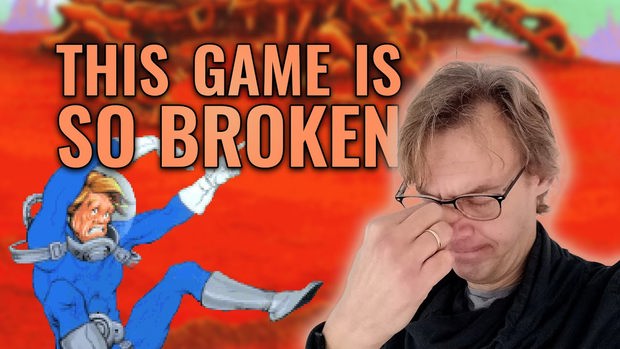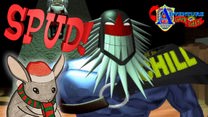Why timers in Sierra games are so broken

- 0 Comments
In theory, remaking older games to run on newer hardware should be a good thing: new graphics, faster processing, more bells and whistles to capitalize on advanced technology. What could be wrong with that? To which longtime Sierra fans reply: Hahahahahahahaaa!!
Oh, right, the Sierra remakes. Most notably (but not exclusively), the early VGA updates of the Police Quest, Leisure Suit Larry and Space Quest series debuts in the early 1990s. This should have been a no-brainer, allowing for hand-painted 256-color backgrounds, rotoscoped animation, music and digital sound effects, and a spiffy new point-and-click interface. Instead, as the Space Quest Historian notes in his latest video, the result was often games that were "so hilariously broken on so many levels."
Where did it all go wrong? Well, not only did the games need to be rebuilt in a brand new engine (SCI had replaced AGI) and the graphics redone from scratch, the real culprit is in the way Sierra handled its timers. Trying to explain it all would make our heads spin, but fortunately we don't have to, as SQH offers a detailed and often hilarious explanation of why something called "tick rates" caused so many bugs. Who knew? Especially when they so often conflicted with a whole different timing system called game loops. (Never mind the adjustable speed slider.)
It's all very technical but eminently watchable as SQH puts the particularly glitchy Space Quest I remake through its paces and explains what's going disastrously wrong under the hood. And even if you don't understand the science, it's a great excuse to watch Roger Wilco melt repeatedly in acid or die over and over by tripping over his own feet and exploding.
Thank goodness we have the Space Quest Historian to explain these things for us – and as he so rightly notes in the video, thank even more goodness for free fan-made emulators like ScummVM and DOSBox so we don't have to deal with these issues anymore!
Space Quest Historian is part of the Adventure Game Hotspot Network, a collective of talented, dedicated content producers who work entirely independently but have joined forces to promote each other’s efforts. All opinions expressed belong solely to the original creators.










0 Comments
Want to join the discussion? Leave a comment as guest, sign in or register in our forums.
Leave a comment